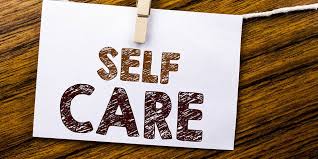Exploring the Power of Journaling: Methods and Benefits
Journaling has long been celebrated as a powerful tool for self-reflection, personal growth, and emotional well-being. Whether you’re seeking clarity, working through challenges, or simply aiming to document your life, journaling offers countless benefits. The best part? There’s no one “right” way to journal. Let’s explore different journaling methods and the benefits they can bring to your life.
Benefits of Journaling
Before diving into the methods, let’s take a closer look at why journaling is so impactful:
1. Stress Reduction: Journaling provides an outlet to process emotions and release tension, helping to lower stress levels.
2. Enhanced Self-Awareness: Writing about your thoughts and feelings can uncover patterns and deepen your understanding of yourself.
3. Improved Problem-Solving: Putting pen to paper often brings clarity to situations and allows you to brainstorm solutions.
4. Emotional Healing: Journaling can be a safe space to explore and process difficult experiences, promoting emotional healing.
5. Goal Setting and Motivation: Writing down goals and tracking progress can keep you accountable and motivated.
Different Ways to Journal
The beauty of journaling lies in its flexibility. Here are several methods to try:
1. Freewriting
Freewriting is a stream-of-consciousness style where you simply write whatever comes to mind without worrying about structure or grammar. It’s a great way to release pent-up emotions and tap into your subconscious.
How to start: Set a timer for 10–15 minutes and write nonstop. Let your thoughts flow freely, even if they seem random.
2. Gratitude Journaling
Focusing on gratitude can shift your perspective and boost your mood. This method involves listing things you’re grateful for each day.
How to start: Write down 3–5 things you’re grateful for each morning or evening. Be specific—detail why each item brings joy or meaning to your life.
3. Bullet Journaling
This method combines organization and creativity. Bullet journaling uses short, concise entries to track tasks, habits, goals, and reflections.
How to start: Use a blank notebook to create sections for daily tasks, habit trackers, and personal reflections. Personalize it with colors or symbols to suit your style.
4. Prompt-Based Journaling
Using prompts can help you explore specific topics or emotions. It’s especially helpful if you’re unsure what to write about.
How to start: Respond to prompts such as:
– “What are my biggest challenges right now, and how can I overcome them?”
– “What makes me feel alive and fulfilled?”
– “What lessons have I learned from recent experiences?”
5. Emotional Release Journaling
When you’re feeling overwhelmed, this method can help process difficult emotions. Write about what you’re experiencing, why you feel that way, and how you’d like to move forward.
How to start: Choose a specific emotion or situation and describe it in detail. Be honest and compassionate with yourself as you write.
6. Visual Journaling
For those who enjoy drawing or working with visuals, this method incorporates art into the journaling process.
How to start: Use sketches, doodles, or collages to express your thoughts and feelings. Pair your visuals with brief written descriptions if you’d like.
7. Goal-Oriented Journaling
This method focuses on planning, tracking, and reflecting on your goals.
How to start: Write down your short- and long-term goals, break them into actionable steps, and track your progress. Reflect on what’s working and where you can improve.
8. Dream Journaling
Dream journaling helps you remember and analyze your dreams, which can provide insight into your subconscious.
How to start: Keep your journal by your bed and write about your dreams as soon as you wake up. Focus on the emotions, symbols, and recurring themes.
Tips for a Successful Journaling Practice
– Start Small: Begin with a few minutes a day or a few entries a week to build consistency.
– Create a Ritual: Find a time and place where you feel comfortable and free from distractions.
– Write to Get It Out of Your Head: When your thoughts are swirling, write to get it out of your mind and onto paper.
– Be Honest: Write authentically, without judgment. This is your space to be yourself.
– Experiment: Try different methods until you find what resonates with you.
Get Started
Journaling is a versatile tool that can transform your mental and emotional well-being. Whether you’re looking to process your emotions, gain clarity, or foster creativity, there’s a journaling method that’s right for you.
If you’re new to journaling or want to deepen your practice, consider combining methods or tailoring them to your unique needs. And remember—journaling isn’t about perfection; it’s about showing up for yourself.
So, whether you grab one really nice journal or have several scattered throughout the house like me, just get started. It doesn’t matter if it’s neat, orderly, and organized or scribbled, out of order, and on random pages. Use whatever structure feels good to you.
As a counselor, I often encourage journaling as part of personal growth and emotional healing. If you’d like support in your journey, I’m here to help. Let’s explore how journaling—and counseling—can empower you to live a more fulfilling life.





